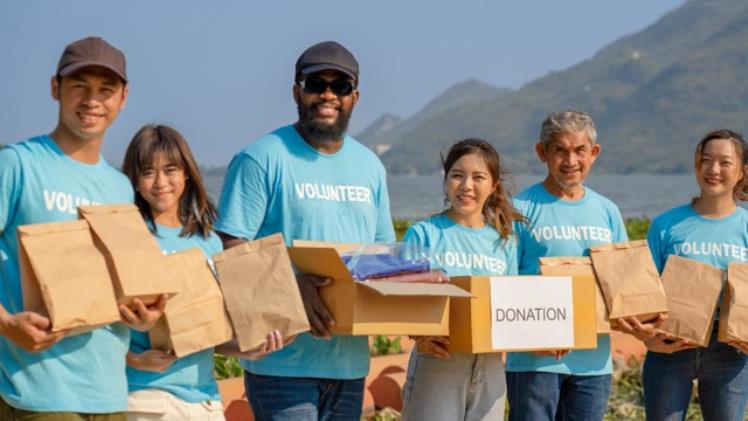Volunteer Programs Abroad Enhancing Cultural Understanding and Global Perspective
Volunteer programs abroad are organized opportunities that allow individuals to travel to another country to contribute their time, skills, and energy to meaningful projects. Volunteer Programs Abroad often focus on areas such as education, healthcare, community development, environmental conservation, and social services. Participants engage directly with local communities, learning about different cultures while making a positive impact.
Why Should I Consider Volunteering Abroad?
Volunteering abroad provides more than just the satisfaction of helping others. It offers the chance to gain hands-on experience in diverse fields, develop new skills, and enhance personal growth. Additionally, living and working in a different cultural environment fosters empathy, adaptability, and cross-cultural communication skills. Many volunteers report a broader worldview and deeper appreciation for global issues after participating in these programs.
Who Can Participate in Volunteer Programs Abroad?
Volunteer programs abroad are open to people of various ages, backgrounds, and skill levels. Students, professionals, retirees, and individuals seeking personal growth can all participate. Some programs may have specific age requirements or skill prerequisites depending on the type of project. For example, teaching or healthcare programs might require certain educational qualifications, while community service or environmental projects may welcome all motivated participants.
How Do Volunteer Programs Abroad Enhance Cultural Understanding?
By living and working within local communities, volunteers experience cultural immersion firsthand. They interact with residents, participate in daily activities, and learn local customs, languages, and traditions. This direct engagement fosters cultural sensitivity and awareness, allowing volunteers to understand the challenges and strengths of different societies. It also helps break down stereotypes and encourages a more nuanced perspective on global issues.
What Types of Volunteer Programs Abroad Are Available?
There are numerous volunteer programs abroad, each catering to specific interests and goals:
- Education and teaching: Assisting in schools, teaching languages, or supporting literacy programs
- Healthcare and medical: Providing basic healthcare support, raising awareness, or assisting medical professionals
- Community development: Building infrastructure, supporting local businesses, or implementing social programs
- Environmental conservation: Protecting wildlife, managing natural resources, or promoting sustainable practices
- Childcare and social services: Supporting orphanages, shelters, or community centers
Each type of program offers unique experiences and learning opportunities, allowing volunteers to align their skills with meaningful projects.
How Do I Choose the Right Volunteer Program Abroad?
Choosing the right program involves considering personal interests, skills, and goals. Factors to evaluate include:
- Location: Consider climate, culture, and safety
- Project type: Match your skills and passions with program objectives
- Duration: Programs can range from a few weeks to several months
- Costs and inclusions: Understand program fees, accommodation, meals, and travel support
- Reputation and support: Look for programs with positive reviews and strong support systems
Careful research ensures a rewarding and impactful volunteer experience.
What Skills Can I Gain from Volunteering Abroad?
Volunteering abroad helps develop both professional and personal skills, including:
- Cross-cultural communication and language skills
- Problem-solving and adaptability
- Teamwork and leadership
- Project management and organizational skills
- Empathy and emotional intelligence
These skills are valuable in professional careers, personal growth, and social interactions, making volunteers more versatile and globally aware individuals.
Are Volunteer Programs Abroad Safe?
Reputable volunteer programs prioritize participant safety. They provide guidance on local customs, health precautions, and emergency procedures. However, safety depends on personal responsibility, such as adhering to guidelines, being aware of surroundings, and following program rules. Researching the destination, understanding cultural norms, and preparing adequately for travel and health considerations also contribute to a safe experience—especially for those becoming a travel agent and guiding others through new destinations.
How Long Do Volunteer Programs Abroad Usually Last?
Volunteer programs abroad vary in duration. Some short-term programs last one to four weeks, suitable for students or professionals with limited time. Medium-term programs can span two to six months, offering deeper immersion and meaningful contributions. Long-term programs, often six months or longer, provide extensive experience and stronger community impact. The choice depends on personal availability, objectives, and commitment level.
Can Volunteering Abroad Improve Career Prospects?
Yes, volunteering abroad can enhance career opportunities. Employers value experience in diverse environments, problem-solving abilities, and adaptability. Volunteers often gain leadership, teamwork, and cross-cultural skills that are transferable to professional settings. Additionally, volunteering in specialized fields like healthcare, education, or environmental conservation can provide practical experience and networking opportunities relevant to future careers.
Do I Need Special Qualifications to Volunteer Abroad?
Qualifications depend on the type of program. While some projects, such as community service or environmental conservation, welcome volunteers of all backgrounds, others may require specific skills, education, or certifications. Teaching, healthcare, or technical programs often ask for prior experience or professional credentials. Most programs clearly outline eligibility requirements, making it easier for prospective volunteers to assess suitability.
How Can Volunteering Abroad Enhance Personal Growth?
Living in a foreign environment and engaging with diverse communities promotes self-discovery and personal development. Volunteers learn resilience, independence, and problem-solving by navigating new challenges. Exposure to different lifestyles and perspectives fosters open-mindedness, empathy, and a sense of global responsibility. Many volunteers report increased confidence, improved communication skills, and a stronger sense of purpose after their experience.
What Are the Costs Associated with Volunteer Programs Abroad?
Costs vary depending on the program, destination, and inclusions. Typical expenses include program fees, accommodation, meals, travel insurance, and personal spending. Some programs offer financial assistance, scholarships, or fundraising options to reduce costs. Understanding the financial requirements upfront allows volunteers to plan effectively and ensures a positive experience without unexpected expenses.
Do Volunteer Programs Abroad Require Language Skills?
While some programs may require basic language skills, many provide language support or translation assistance. English is commonly used in international volunteer programs, but learning local phrases or basic communication skills enhances engagement and cultural immersion. Volunteers who invest time in learning the local language often have a deeper connection with communities and a more fulfilling experience.
How Can Volunteering Abroad Promote Global Awareness?
Volunteering abroad exposes participants to global challenges, such as poverty, education inequality, healthcare disparities, and environmental issues. Direct involvement allows volunteers to witness these realities firsthand, encouraging informed perspectives and a proactive mindset. By engaging with local communities and international peers, volunteers gain a broader understanding of global interconnections and the impact of individual actions on worldwide issues.
Can Volunteer Programs Abroad Help Build Lifelong Relationships?
Yes, volunteering abroad often leads to meaningful connections with fellow volunteers, local community members, and international organizations. Shared experiences in challenging and rewarding environments foster friendships and professional networks. These relationships can offer ongoing support, collaboration opportunities, and a sense of belonging within a global community.
What Are the Challenges of Volunteering Abroad?
While rewarding, volunteering abroad can present challenges, including:
- Cultural differences and adjustment
- Language barriers
- Homesickness or isolation
- Physical demands of certain projects
- Navigating local regulations and healthcare systems
Being mentally prepared, flexible, and open-minded helps overcome these challenges and ensures a positive and impactful experience.
How Can I Prepare for Volunteering Abroad?
Preparation is key to a successful volunteer experience. Steps include:
- Researching the destination, culture, and project
- Ensuring necessary travel documents and vaccinations are in place
- Packing appropriately for climate, work conditions, and cultural norms
- Learning basic phrases in the local language
- Setting realistic expectations and personal goals
Preparation reduces stress, enhances cultural understanding, and maximizes the impact of your contribution.
Are There Opportunities for Professional Development in Volunteer Programs Abroad?
Many volunteer programs offer opportunities to develop professional skills. Teaching, healthcare, and environmental projects provide practical experience and exposure to international practices. Volunteers can acquire project management, teamwork, and leadership skills applicable to future careers. Some programs also offer mentorship, workshops, or certifications that further enhance professional growth.
How Can I Measure the Impact of My Volunteer Work Abroad?
The impact of volunteering can be observed through tangible and intangible outcomes:
- Positive changes in the community, such as improved education, healthcare, or infrastructure
- Feedback from local partners and program coordinators
- Personal growth and development in skills, confidence, and cultural understanding
- Long-term relationships and ongoing contributions to the community
Volunteers can also document experiences through journals, photos, and reports to reflect on their contributions and growth.
What Trends Are Emerging in Volunteer Programs Abroad?
Recent trends in volunteer programs include:
- Emphasis on sustainable development and environmentally conscious projects
- Integration of technology and digital skills to support local initiatives
- Customized programs tailored to volunteer interests and skills
- Focus on experiential learning, cultural immersion, and personal development
- Collaboration with local organizations to ensure long-term community benefits
These trends highlight the growing emphasis on meaningful, impactful, and sustainable volunteering experiences.
Conclusion
Volunteer programs abroad offer a unique opportunity to contribute to global communities while enhancing personal growth, professional skills, and cultural understanding. By engaging in meaningful projects, participants gain a broader worldview, develop empathy, and build skills applicable to various aspects of life and career. Preparation, responsible participation, and cultural sensitivity ensure a safe and rewarding experience. The lasting relationships, knowledge, and perspectives gained through volunteering abroad create a profound impact not only on the communities served but also on the volunteers themselves, fostering a lifelong commitment to global awareness and social responsibility.







